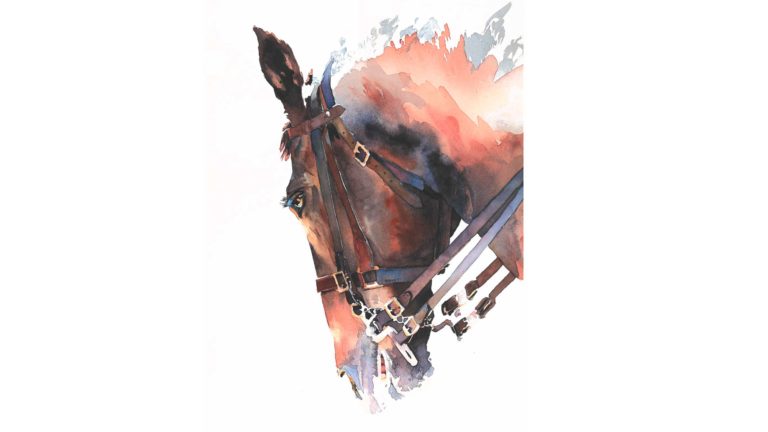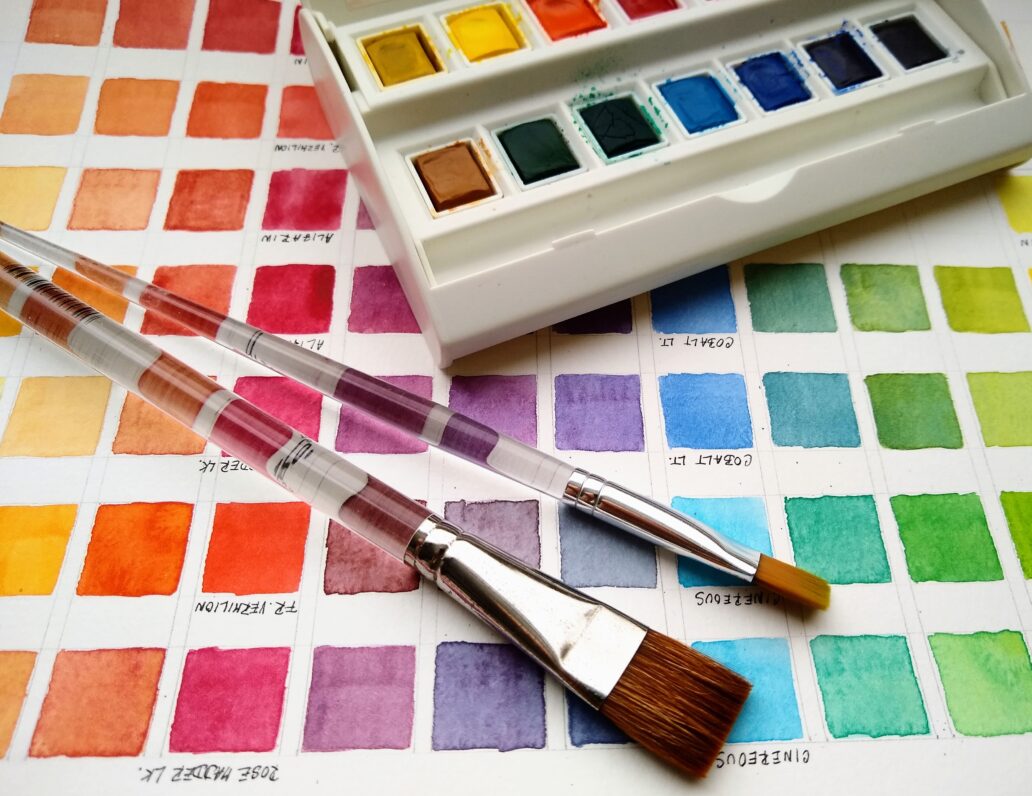
Watercolor: Tips, Tricks and Techniques
10 – 3 pm
In this workshop, I will share with you some really great tips, tricks and techniques I have learned along the way, either through my own experimentation or from some pretty amazing artists including Carl Purcell, Karen Frey, the late, great, Charles Reid, and John Salminen. You don’t need to be an expert for this class; I’ll show you how a lot of special effects are accomplished, and how to get those really great darks that make your paintings exceptional!No middle-value blah paintings here!
Sunday, June 28
10 – 3 pm
Instructor: Ronnie Rector
Ages: Adult (15+) / All Levels
Supply List:
Bring your own watercolor painting kit, but be sure to have the following:
• One full sheet (22×30) of Arches 140 lb cold press, which you will tear into eight 5.5×7.5 pieces, or a watercolor sketchbook*.
• Pen and pencil, to sketch with and take notes.
• Watercolor** brushes: A #6 and #10 round, and a 1” flat, will be adequate. I recommend Silver’s Black Velvet brushes or Richeson’s “Quiller” 7000 series brushes as an excellent, not-too-expensive choice.
• Watercolor paints of your choice. “Artist grade” paint, please – colors are stronger and more vivid. My favorite colors are listed at the end of this, if you’re interested.
• Watercolor palette. I recommend something like Cheap Joe’s Original palette or the Robert Wood palette, which both have bigger wells for your paints and large mixing areas. The tiny travel palettes are okay but bring a white plate or metal butcher’s tray (RESCO) to make good puddles of paint in.
• Roll of 2” masking tape (NOT blue or green painter’s tape or white “artist’s” tape).
• Wide mouth water container – the plastic “Folgers Coffee”-style tubs are great!
• Small container of salt
• Spray bottle for water
• Sea sponge if you have one. If not, you can watch the demonstrated techniques and see if you like them.
• Paper Towels (Viva are best for watercolors!)
• Blow Dryer
*Be sure your sketchbook is made with (at a minimum) 140 lb. watercolor paper, which can hold up to applications of water and paint without shredding like sketch paper.
**Brushes used for acrylics will not provide the results you want to see when working in watercolor.
If buying supplies at NV Fine Arts, tell them you’re taking my class and they’ll give you a 10% discount.
Questions? Send me an email! ronnierector@yahoo.com
|
Paint Colors I Use Often |
When Mixed Together |
|
Ultramarine Blue |
Warm Darks |
|
Burnt Sienna |
|
|
Permanent Alizarin Crimson |
Cool Darks |
|
Phthalo Green |
|
|
Cadmium Yellow Orange |
Pretty Gray |
|
Cobalt |
|
|
Yellow Ochre |
Flesh Tones |
|
Scarlet Lake |
|
|
Azo Yellow |
Flesh Tones |
|
Opera |
|
|
Quinacridone Gold |
|
|
Olive Green |
|
|
Sap Green |
|
Buy what YOU like, though; don’t limit yourself to my choices!
Buy what YOU like, though; don’t limit yourself to my choices!
If you don’t already have watercolors of some sort, here’s a good place to start:
Source – Nevada Fine Arts:
1 full sheet of Arches 140 lb cold press watercolor paper (~$10)
1 size 8(ish) round watercolor paint brush – Richeson 7000 “Quiller” series (~$15)
3 tubes of Daniel Smith watercolors, a blue, a red and a yellow; each are from $9 to $12. I suggest:
Cobalt or Ultramarine Blue
Carmine or Pyrrol Red
Azo Yellow or Hansa Yellow Medium
A plastic palette with a few good sized wells ($5-$15) or butcher tray for mixing paints
And a good-sized container for water, a roll of plain ol’ masking tape, and some Viva paper towels.
Email me if you have any questions about your watercolor kit – ronnierector@yahoo.com!
Covid 19 Museum School Policies:
– All students will be requested to wear a mask for the duration of their visit inside the Museum school. Mask will be provided upon request.
– Please exercise social distancing when in close proximity to other students and staff. Class sizes and seating arrangements have been changed to allow for 6 feet of social distance.
– Please note, snacks and drinks will no longer be distributed during class. Students are encouraged to bring their own personal water bottle and snack if needed to class.
– Please do not attend class if you or anyone in your household (including anyone who you have experience close contact with over the last 14 days) are feeling ill. To request a refund or options to reschedule please email Jen.Henry@nevadaart.org

